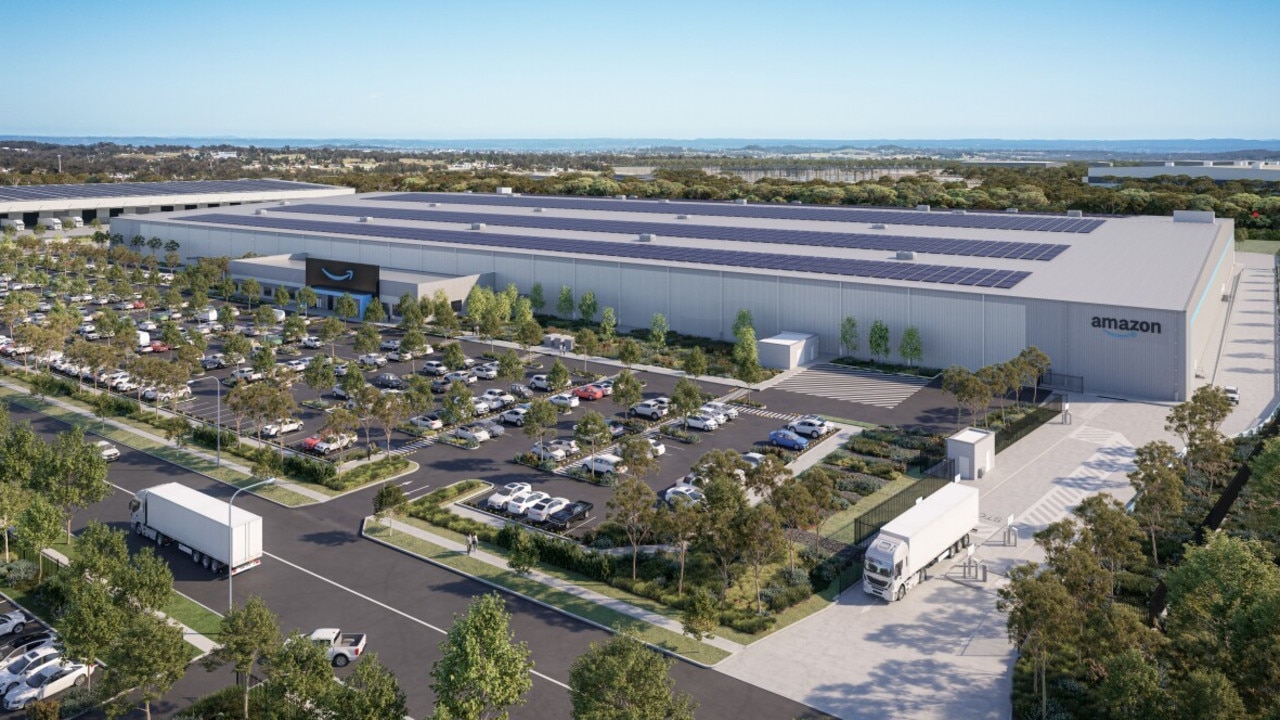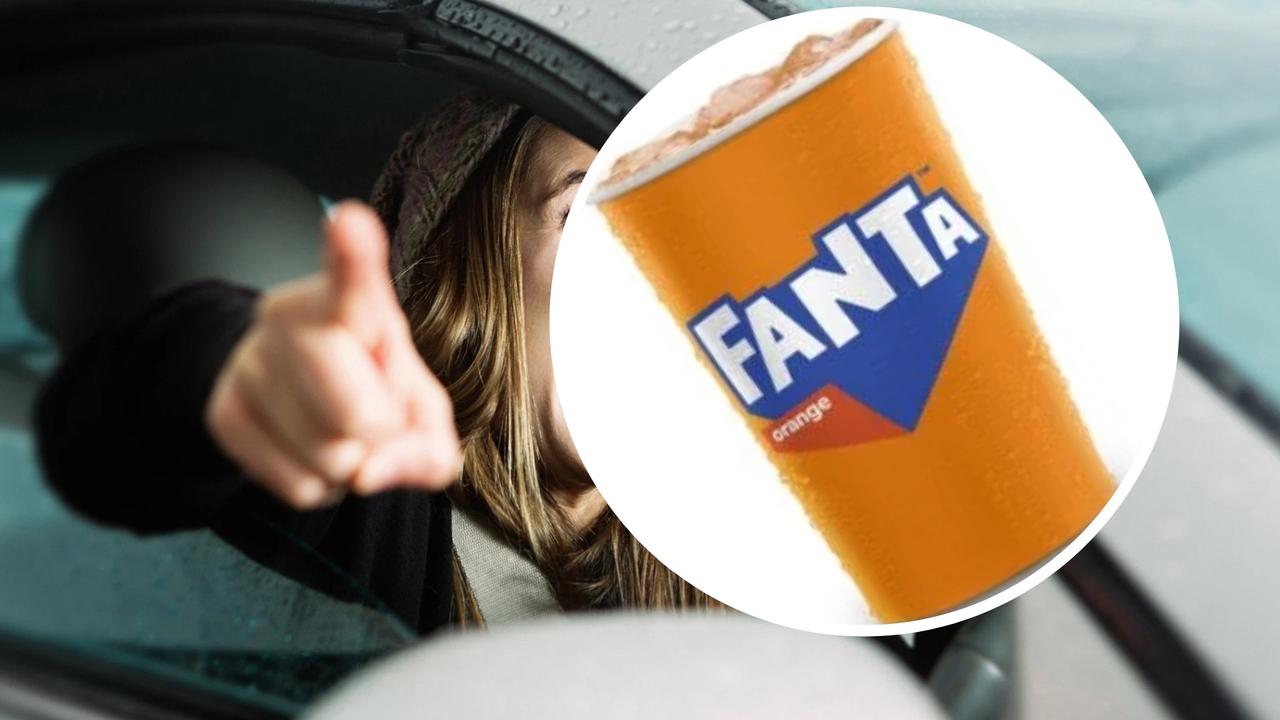Canterbury-Bankstown Council calls abandoned shopping carts ‘dangerous’, warns they’re putting lives at risk
Abandoned shopping trolleys in Sydney’s southwest are causing hundreds of dollars in damage, frustrating locals and prompting a council to warn lives are at risk.

The Express
Don't miss out on the headlines from The Express. Followed categories will be added to My News.
A shopping cart “crisis” near a major southwest Sydney shopping centre has sent residents off their trolleys with frustration, causing hundreds of dollars in damage and prompting the local council to warn lives are at risk.
Shoppers absconding with trolleys from shopping centres across Canterbury-Bankstown are abandoning them on footpaths, roads, train tracks and even in waterways, according to the Canterbury-Bankstown Council.
On Tuesday, the Canterbury-Bankstown Express surveyed four streets near Bankstown Shopping Centre and located 18 abandoned shopping trolleys from popular retailers Woolworths, Coles, Kmart and Big W.
Meredith St, just 15 minutes walking distance from Bankstown Central Shopping Centre, had up to 10 shopping carts lining the street.
Local homeowner Soraya Fardous rolled out her frustrations, saying shopping carts littered the street outside her apartment complex every day.
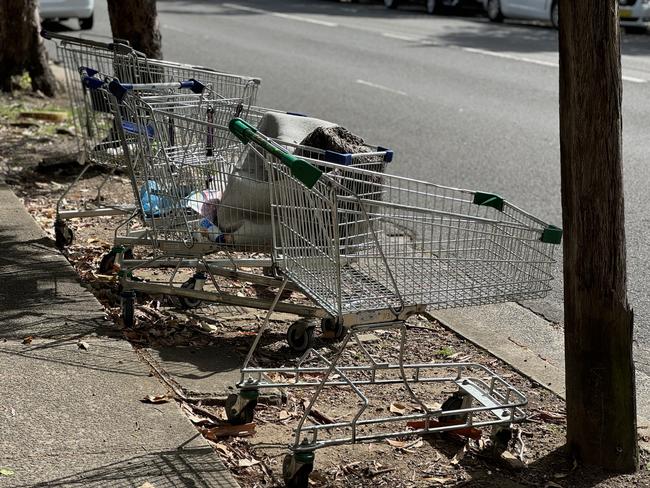
“They’re everywhere and I never see them get collected and it’s a shame,” she said.
“It’s not good for the street image.
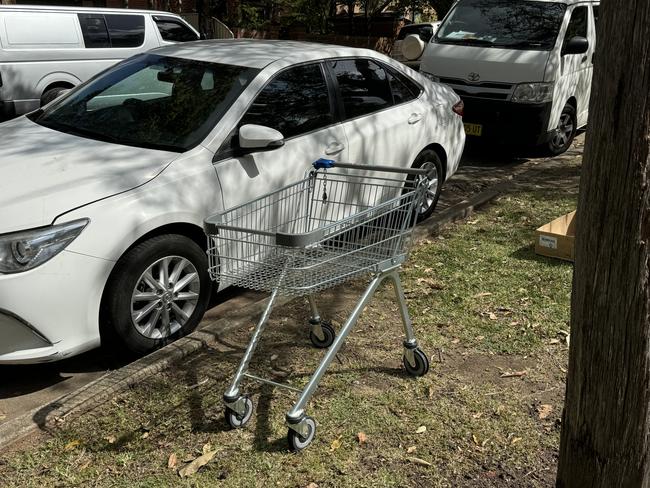
“They’re dangerous. They hit cars, scrape them, and kids like to roll around up and down the street in them.”
Ms Fardous said she had found scratches, which she believed had come from shopping trolleys, on her car at least twice.
Canterbury-Bankstown councillor Harry Stavrinos, a former Randwick City councillor, said young people were especially at risk of injury – and even death.
He noted that in 2015, a Swedish tourist had died after riding in an abandoned shopping trolley in Randwick.
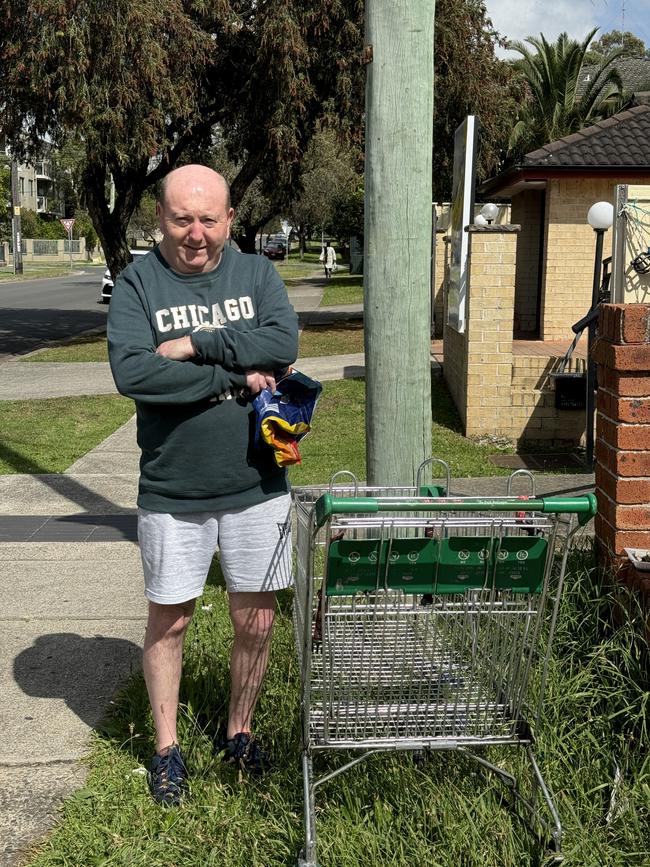
Police said the cart had rolled down a steep hill, exceeding 80km/hr before slamming into a car and launching the man into a gutter.
“This is dangerous” he said.
“They’re a public liability and it shouldn’t be council’s responsibility to clean up after retailers.”
Peter O’Callaghan, a Bankstown local for the past 20 years, said in his experience, most people who took trolleys were elderly people who did not drive and could not afford a delivery service.
“It’s easy for us to say that it’s a problem, but to be honest I don’t even see a solution,” Mr O’Callaghan said.
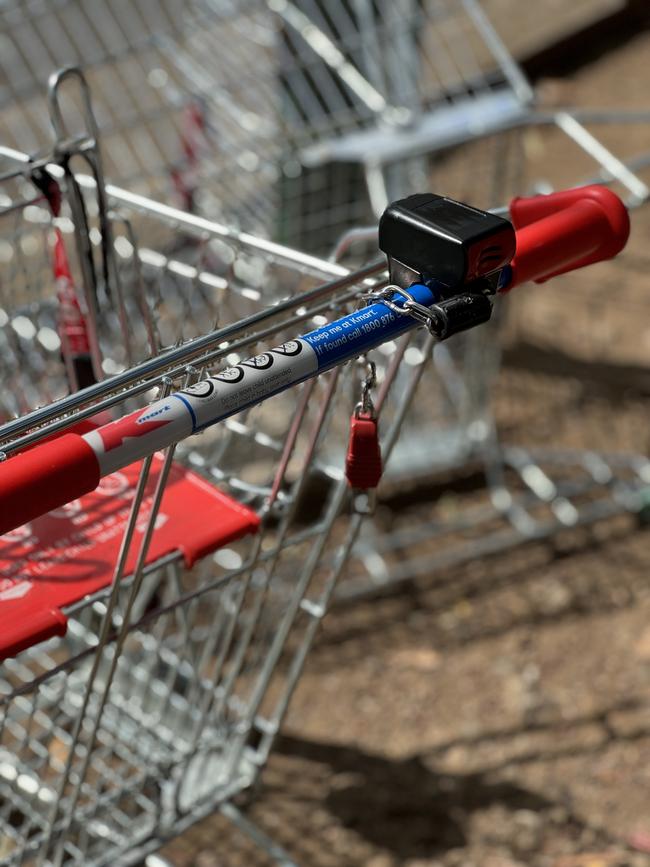
“There are so many people who don’t drive. They can’t afford delivery or the bags are too heavy for them to carry. What do they do?”
Mr O’Callaghan said while it was definitely a hazard, any solution would have to tackle why people took trolleys in the first place.
According to the latest data from comparison site Finder, a survey of 1062 people in June revealed 16 per cent of respondents had stolen a trolley or basket from a supermarket in the previous 12 months.
If that percentage was applied to the Australian population, it would equate to about 3.3 million people.
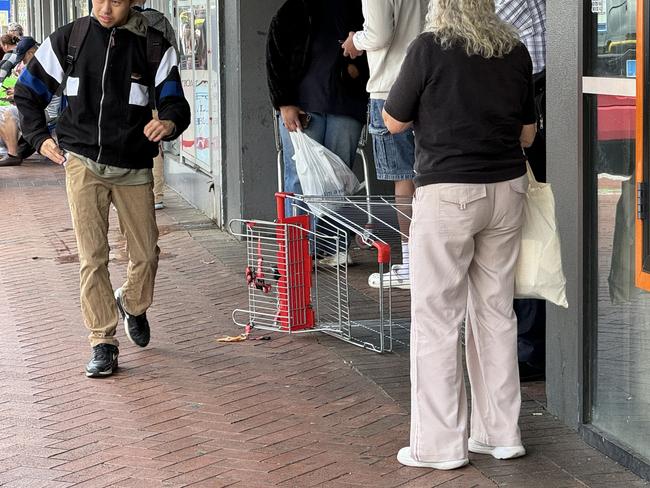
Trolley Tracker, which coordinates the recovery of carts for Woolworths, Big W and Dan Murphy’s, said it had received more than 3 million reports of discarded trolleys despite those brands having just 4 million in circulation across the state.
The council will soon undertake a review of major retailers operating in the city, question their CEOs on how shopping trolleys were being taken and how retailers address the issue.
Speaking at a council meeting, Mayor Bilal E-Hayek said despite supermarkets raking in “billions” in profit every year, retailers had failed to roll out existing technology like smart trolleys.
Smart trolleys, unlike regular or gold-coin accessible trolleys, are equipped with GPS technology that prevents people from taking them outside a designated area by automatically locking the wheels when they reach a boundary.
Trolley Tracker managing director Chris Ford said in his 30 years of experience managing the service, he believed there was “no silver bullet” to fix the issue.
“It’s ultimately the responsibility of shoppers to return carts to the store or to a safe space, like a trolley bay,” he said.
“Retailers have spent millions collecting trolleys and introducing new technology, but even smart trolleys aren’t the silver bullet people think they are.
“People get frustrated when they can’t take trolleys wherever they want, so they break them and take them anyway.”
Mr El-Hayek said despite hefty fines of nearly $8000 and court penalties of up to $13,750 introduced under the Public Spaces (Unattended Property) Bill in 2021, the city was seeing an increase in shopping trolleys being discarded in public areas.
He said if the council was left to deal with the “scourge”, the cost to ratepayers would be in the millions.
“It’s time to take on the supermarkets and stop their wheels from spinning,” he said.



